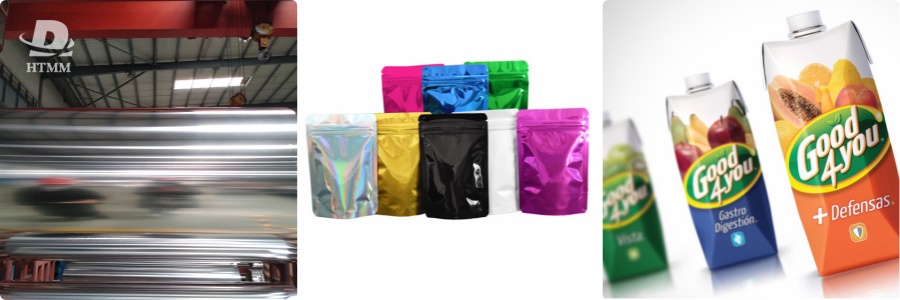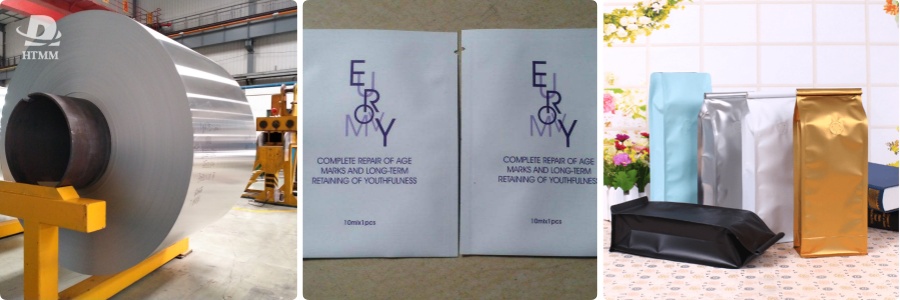
Factory made Aluminum Foil 7 Micron Foil offers key advantages that make it a popular choice for flexible packaging. At just 0.007mm thick, it provides excellent barrier protection while maintaining flexibility. This allows it to be used in a wide range of applications where thinner foils were not previously feasible. The rise of new filling and packaging technologies has also enabled the use of 7-micron foil on high-speed production lines. As a result, it has become the thickness of choice for many food and consumer goods companies looking to offer innovative packaging formats.
The development of flexible packaging
The rapid expansion of the global flexible packaging industry is driving the demand for wholesale Alu Foil 7 Micron Alloy 8011/1235. Flexible packaging such as sachets, bags, wraps and foil lids offer many advantages over rigid containers for food brands. They allow for custom design, graphics and packaging marketing to help products stand out on crowded store shelves. The flexible format is also lightweight, which reduces shipping and storage costs. Most importantly, they provide an excellent barrier against moisture, oxygen, grease and bacteria, thereby extending the shelf life of packaged products.
Flexible packaging is widely used in food sectors such as snacks, fresh foods and frozen foods. Flexible packaging formats are growing in popularity as consumers increasingly seek portable, single-serve and on-the-go packaging options. They are particularly suitable for smaller product sizes for single-serve or single-use packaging needs.
The boom in flexible packaging has spurred huge demand for thin aluminum foil, as its barrier properties make it an ideal material for many multi-layer flexible packaging structures. The thin 7 micron gauge provides the flexible features required for high-speed switching operation while still providing the oxygen and moisture protection of aluminum. As a result, 7-micron foil finds application in food categories, from snacks and confectionery to fresh and frozen produce. It is usually laminated or extruded coated films such as polyethylene or polyester to produce composite foil packaging structures.
Emerging applications

Some of the emerging applications driving 7 micron foil adoption include:
Fresh Pet Food Bags: The humanization of pets has led to the growth of high-end, humane packaged food for dogs and cats. Aluminum Foil 7 Micron Alloy 8011/1235 laminate film provides an effective moisture and oxygen barrier to protect perishable ingredients in flexible bags.
Frozen meals and snacks: Consumers want convenient frozen single-serve meals for breakfast, lunch or snacks. 7 micron foil lidding films and pouches make these products shelf stable and easy to carry from the refrigerator to the microwave.
Healthcare and Medical Packaging: The pharmaceutical and medical device industries use 7 micron foil for applications such as pharmaceutical blister packaging, diagnostic kit packaging and medical device packaging because of its thin, flexible yet highly protective properties.
Candy and snack packaging: Chocolate bars, snack cakes, rice crispy snacks and other baked goods are often packaged in laminated structures of 7 micron foil because of its formability and ability to maintain freshness without adding significant thickness.
Produce Bags: Fresh herbs, berries, salad mixes and other perishable produce are sold in shrink-wrap bags containing a 7-micron foil layer that protects moisture better than traditional plastic film.
Coffee Packaging: Ground coffee, single-serve coffee pods and soluble instant coffee sticks benefit from 7-micron foil lamination, maintaining product freshness without creating odors throughout the packaged product’s shelf life.
With the rapid rise of flexible packaging and the emergence of new application areas, 7 micron aluminum foil is poised to play a more important role, providing a superior barrier with optimal thinness, flexibility and ease of processing. Its unique combination of attributes makes it the thickness of choice for innovative packaging formats in global consumer markets.
7 micron foil process optimization
For aluminum foil producers, the growth of Aluminium Foil 7 Micron Alloy 1235 means optimizing manufacturing processes to produce this ultra-thin format with the consistency and quality levels to meet the most demanding packaging application requirements. Achieving 7 micron diameter tolerances over wide coil widths requires advanced foil rolling and processing techniques.
Leading aluminum foil manufacturers like HTMM have made significant capital investments in state-of-the-art foil rolling mills, slitting and rewinding machines, coil handling lines and quality control systems. Factory certified thickness variations of less than +/- 1 micron. An automated in-line measurement system takes over 10,000 data point readings per coil to ensure foil performance is within highly stringent specifications.
Tight caliper consistency is critical for effective lamination, printing and converting foil to end packaging structures. Variations in thickness can cause problems such as wrinkling, breakage, or uneven coating. Producing defect-free 7 micron foil at large commercial scale requires advanced mill technology, strict process control and an experienced technical team operating under strict ISO certification. Leading foil producers invest heavily in research and development to continuously optimize their production capabilities to produce thinner sheets.
As innovation in flexible packaging accelerates globally, 7-micron aluminum foil is poised to expand further due to its unique flexibility and ability to provide an optimal barrier. HTMM has secured its leading position in the flexible packaging revolution with state-of-the-art aluminum foil solutions.

